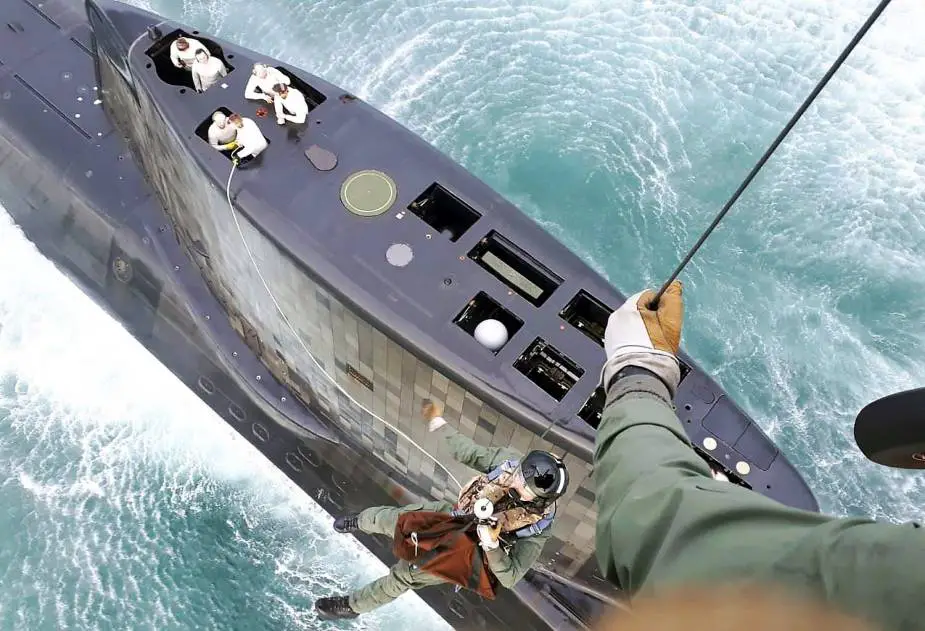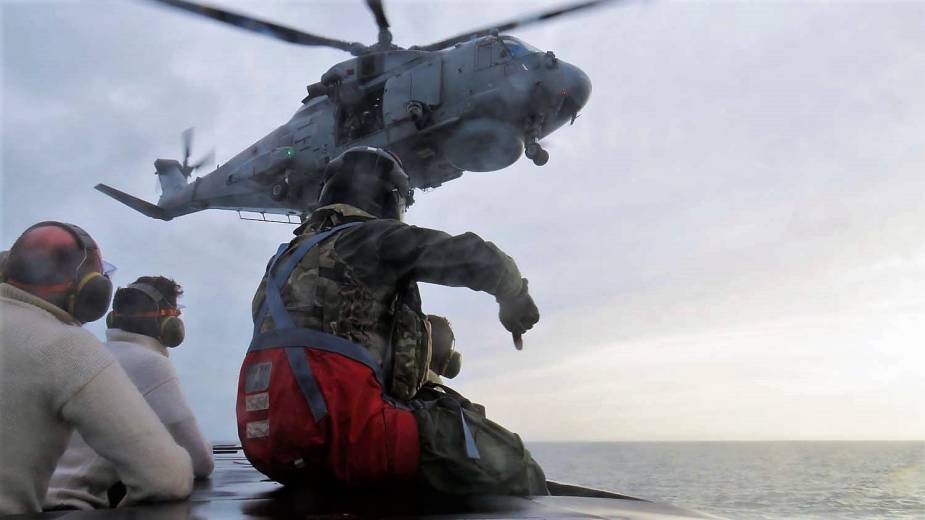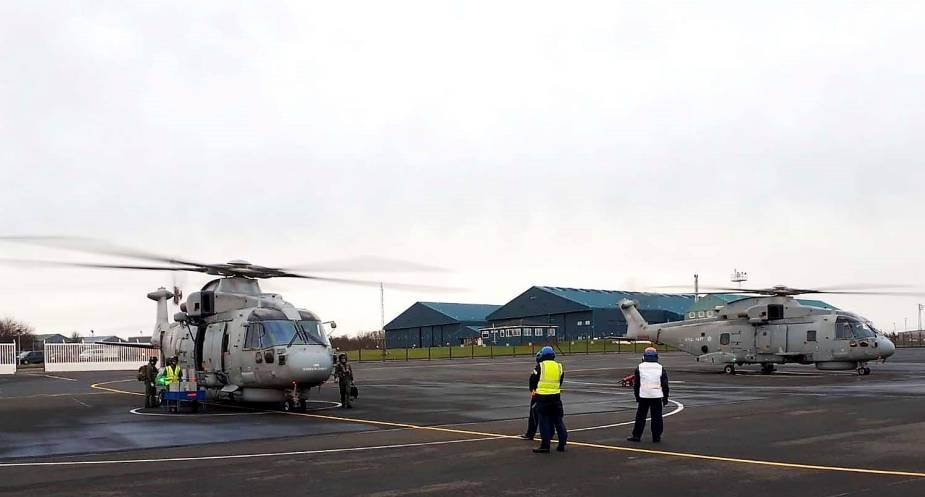Breaking news
Royal Navy most advanced submarine and Merlin Mk2 submarine hunters go head-to-head.
As reported by 824 Naval Air Squadron on Royal Navy’s website, prospective Royal Navy submarine commanders and trainee helicopter sub-hunters pitted their skills against each other during live exercises off the coast of Scotland. The Navy’s most advanced submarine, an Astute-class hunter-killer – and its most potent adversary, a Merlin Mk2 helicopter – played cat and mouse to enhance the training and expertise of both.
Follow Navy Recognition on Google News at this link
 Transfer from an Astute-class hunter-killer submarine to a Merlin Mk2 helicopter (Picture source: Royal Navy)
Transfer from an Astute-class hunter-killer submarine to a Merlin Mk2 helicopter (Picture source: Royal Navy)
The boat was hosting officers undergoing the final, sea-going phase of the intense and demanding Submarine Command-qualifying Course – known as ‘the Perisher’. Successful candidates go on to become executive officers, the next step towards competing for command of their own boat. The course, which has been running for 105 years, is world-renowned as one of the most testing selection procedures in any military.
As well as prospective Royal Navy submarine commanders, officers from a variety of partner and allied navies have also undergone the training with successful candidates forming a small, elite international family of ‘Perishers’. Stalking them above the water were trainee Merlin Mk2 helicopters pilots, observers, and aircrew from the Fleet Air Arm.
 Maneuvering for a transfer from a submarine to a Merlin Mk2 helicopter (Picture source: Royal Navy)
Maneuvering for a transfer from a submarine to a Merlin Mk2 helicopter (Picture source: Royal Navy)
While the submariners attempted to evade detection and carry out a series of missions, they were hunted by the helicopters above, armed with powerful dipping-sonar and sonobuoys, peppering Scottish waters and listening for the tell-tale sounds of a boat moving through the depths. “We took 12 trainees and two aircraft from our base at RNAS Culdrose to HMS Gannet at Prestwick for a week of live anti-submarine warfare exercises,” explained Commander James Taylor, Commanding Officer of the Merlin training unit 824 Naval Air Squadron.
“For the trainees, this is the culmination of a long and demanding flying training pipeline. Having learned how to fly and safely operate the aircraft as individuals, the detachment made them work together as a crew, to fight the Merlin Mk2 against live submarines. They’ve spent countless hours in the simulators and flying training sorties, but this short, sharp period has taken their experience to a new level. Operating in an unpredictable environment forces them to deal with a myriad of real-world challenges – not least the changeable Scottish weather – having to constantly think on their feet and adapt their plans.
“None of our trainees had worked with a real submarine before. To pit themselves against the finest in the Submarine Service pushes them to become the Royal Navy’s elite sub-hunters. They’ve spent countless hours in the simulators and flying training sorties, but this short, sharp period has taken their experience to a new level. Operating in an unpredictable environment forces them to deal with a myriad of real-world challenges – not least the changeable Scottish weather – having to constantly think on their feet and adapt their plans.
The aircrews also practised secondary roles in their capacity as maritime patrol aircraft, such as winching personnel to and from a boat at sea.
Successful aircrew will qualify for service with the frontline squadrons, either protecting the UK’s submarines or defending the Royal Navy’s aircraft carriers from underwater threats.
 “We took 12 trainees and two aircraft from our base at RNAS Culdrose to HMS Gannet at Prestwick for a week of live anti-submarine warfare exercises,” explained Commander James Taylor, Commanding Officer of the Merlin training unit 824 Naval Air Squadron. (Picture source: Royal Navy)
“We took 12 trainees and two aircraft from our base at RNAS Culdrose to HMS Gannet at Prestwick for a week of live anti-submarine warfare exercises,” explained Commander James Taylor, Commanding Officer of the Merlin training unit 824 Naval Air Squadron. (Picture source: Royal Navy)


























